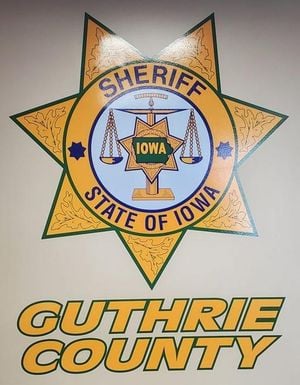Drivers in Cheshire West and Chester—and indeed, motorists across the UK—are being urged to stay vigilant as a new wave of parking scams sweeps through communities, exploiting both technological tricks and the public’s trust in official communications. On September 3, 2025, Cheshire West and Chester Council issued a public warning after their parking service became aware of a spate of fraudulent text messages targeting local drivers with threats of licence suspension, court action, and even credit score damage. These warnings are not isolated: national reports from The Independent and other outlets confirm that similar scams, including fake QR codes and tampered payment machines, have been on the rise throughout the summer.
Maria Byrne, Director of Environment and Communities at Cheshire West and Chester Council, addressed the growing concern directly. “Our parking team has recently been made aware of these scams. They may appear urgent or official, but they are not and they will include a link to a fake payment page,” she said, as reported by local news sources. Byrne’s advice was unequivocal: “If you receive such a message, please do not click the link or enter any personal or payment details. We urge residents and visitors to remain vigilant and be aware of such scams.”
The council made it clear that it will never send Penalty Charge Notices (PCNs) for parking contraventions by text message. Instead, genuine PCNs are issued as physical tickets attached to a vehicle’s windscreen or sent by post. This distinction is crucial, as scammers increasingly mimic the appearance of official correspondence to trick unsuspecting victims into handing over sensitive information or making fraudulent payments.
Residents are being encouraged to ignore and delete suspicious texts, and to report any scam messages by forwarding them to 7726—a free service available on most UK networks. For those who remain uncertain about the legitimacy of a message, the council recommends visiting their official website for guidance. If someone believes they have been affected, the advice is to contact their bank immediately and report the incident through the appropriate channels.
While the local warning is significant, the issue is far from confined to Cheshire West and Chester. According to The Independent, parking scams have proliferated across the UK in recent months, with fraudsters deploying a variety of tactics to ensnare drivers. Among the most common methods are fake text messages, often sent en masse, that demand urgent payment and threaten severe consequences for non-compliance—prosecution, licence revocation, or a ruined credit score. These messages typically include links to websites designed to mimic legitimate government or council payment portals, but a closer inspection often reveals discrepancies, such as a domain that does not begin with ‘www.gov.uk’.
Nick Stapleton, a scam expert for the BBC, emphasized the importance of checking for three key details on any parking fine: the vehicle registration, the time of the offence, and the location it occurred. “Real parking fines will include vehicle registration, the time of the offence and the location it happened,” Stapleton explained. If any of these elements are missing, it’s a strong indicator that the communication is fraudulent.
Scammers don’t just rely on text messages. A newer and particularly insidious form of fraud involves the use of fake QR codes—sometimes referred to as ‘quishing’. These codes are surreptitiously placed on parking machines, leading unsuspecting drivers to phishing websites that closely resemble those of local councils or parking companies. The goal is the same: to steal personal and financial information. Claire Webb, Acting Director of Action Fraud, urged caution: “We’re urging people to stop and check before scanning QR codes, to avoid becoming a victim of quishing. Look out for QR codes that may have been tampered with in open spaces, or emails and texts that might include rogue codes. If you’re in doubt, contact the organisation directly.”
To avoid falling victim to these scams, experts recommend not scanning QR codes found in public spaces unless you are absolutely certain of their authenticity. Instead, navigate directly to the relevant organisation’s website via your own device, bypassing any potentially compromised codes or links.
Perhaps even more concerning is the emergence of tampered card readers on parking machines—a scam that has grown more sophisticated over the summer, according to the British Parking Association (BPA). Fraudsters may place a hacked card reader over the legitimate one, sometimes concealing it with a sticker to maintain the appearance of authenticity. If a driver attempts to pay and the machine indicates that the card has been declined, it could be a sign that the card details have been harvested by the scam reader. The BPA advises motorists to always inspect card readers for signs of tampering before use and to cancel their card immediately if they suspect it has been compromised.
Adding to the confusion, drivers can receive three different kinds of fines: a penalty charge notice issued by the council, a fixed penalty notice issued by the police, or a parking charge notice from a private company. Scammers frequently pose as any of these entities, including government agencies like the Driver and Vehicle Standards Agency (DVSA), to lend credibility to their ruse. However, the DVSA itself has clarified that it does not issue fines, and any such communication should be treated with suspicion. The agency encourages recipients of scam texts to report them to the National Cyber Security Centre.
For those seeking further guidance, Cheshire West and Chester Council’s website provides a dedicated section on staying safe from scams. The council’s spokesperson reiterated: “Stay safe by ignoring and deleting suspicious texts; report scam texts by forwarding them to 7726 (free from most UK networks) or visit the council website if you’re unsure.”
As the tactics employed by fraudsters become ever more inventive, the message from authorities and experts alike is clear: vigilance is key. Whether it’s scrutinizing a parking fine for missing details, double-checking the authenticity of a QR code, or inspecting a card reader for tampering, a few moments of caution can save drivers from financial loss and the stress of identity theft.
In an era where digital communication is ubiquitous, and official-looking messages can be crafted with ease, it’s more important than ever for motorists to trust their instincts and verify before they act. For now, the best defense remains a healthy dose of skepticism and a commitment to reporting suspicious activity—helping to ensure that others don’t fall victim to the same traps.





